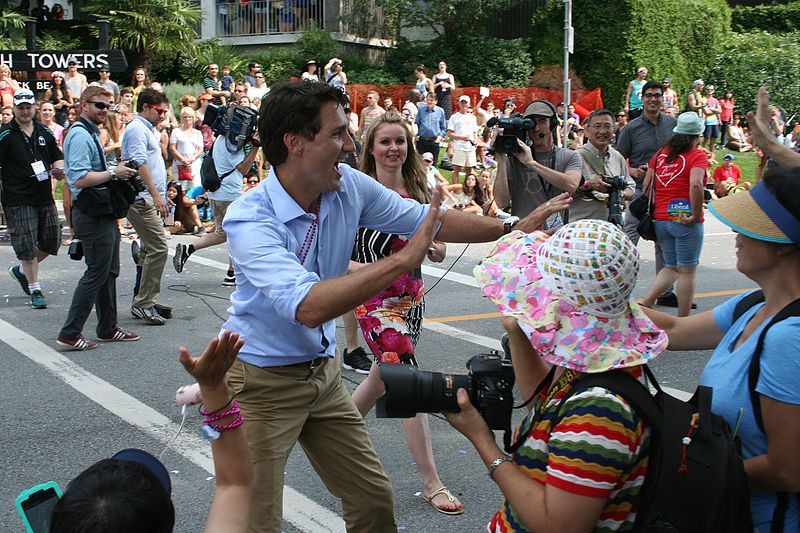On Monday night, a trio of colonial governments were honouring First Nations in B.C. with a new ring on the Black Rod. For those not up on the glitzier accoutrements of English-style governance, the Black Rod is a fancy stick that we keep in the Legislature because it looks a lot like a fancy stick that the British Parliamentary system uses.
Press reported it breathlessly — this was the big symbolic moment: the acknowledgement of past wrongs, the promise to move forward in consultation and unity. After last year’s federal promise of a “renewed nation-to-nation relationship” with First Nations, now Justin Trudeau’s government, B.C. Premier Christy Clark’s and even the British monarchy were ready to put deeds to words. Indigenous people, they said, we are here with you.
Less than 24 hours later, federal Environment Minister Catherine McKenna stood on a dais alongside a beaming Clark and announced that her government would be giving conditional approval to a proposal from Petronas Energy for a massive liquefied natural gas terminal.
It’s a monster of a project, adamantly opposed by many First Nations along B.C.’s Northwest Coast — and one that almost singlehandedly blows B.C.’s carbon budget — plunked on unassuming Lelu Island outside Prince Rupert, smack dab in unceded territory.
Lelu Island doesn’t look like much on the ground, but its banks have ecological and cultural significance to several First Nations. Flora Bank is an important habitat for young salmon in British Columbia — they thrive in its rich sediments and plentiful eelgrass.* And B.C. needs happy salmon. They’re one of those baseline species in our coastal food chain, necessary for the survival of much of the charismatic megafauna we love about our province — not to mention the people, largely First Nations, whose diet and livelihood live and die with it.
Trudeau knows all that. So does Clark.
Clark, for her part, barely appears to care about what First Nations on the coast think of her. She was apparently booed in front of the Royals twice Tuesday in Bella Bella, and I expect she barely heard it. She knows they’ll never vote for her next May anyway, and she also knows that at the moment she’ll likely win without them. (An aside: To John Horgan, please read that previous sentence over and over again until it spurs you to do something, anything to mobilize a massive motivated movement of voters to fix it.)
Trudeau is in a very different place than Clark. He’s barely a year into his term and his electoral reckoning is ages away. Plus, unlike Harper and the omnibus bills of his first 100 days, Trudeau has largely eschewed actual legislation. Instead, we’ve collectively been treated to a charm offensive as he circles the globe rebranding Canada in his name, along with his handsome face, friendly family, and progressive, feminist politics.
“Canada is back,” he said in Paris at the Climate Talks last year. “We’re Canadian — and we’re here to help” he said last week at the United Nations, pledging more support to refugees. Honestly, it’s such a change from Harper that lots of people including the media— are happy to just hear the lovely words. And don’t get me wrong, they are lovely.
They are also just words.
And maybe that’s the thing Trudeau, for all his media savvy, just doesn’t get.
The speeches, the selfies, the symbolic fourth rings on the symbolic black rods aren’t a legacy. At best, they’re cute footnotes in a magazine feature about young voters abandoning him and his party en masse for betraying them on climate change. Maybe they’re in the slideshow alongside an article about how B.C. residents rose up to recall Liberal MPs in punishment for making their lands and waters a sacrifice zone to unwanted energy projects. At worst, they’re the ironically juxtaposed tweets accompanying the video interview from the steps of the Supreme Court as B.C. Nations sue the government again for forgoing good-faith negotiations in favour of a quick win with big infrastructure companies.
Twenty-four hours before, in the absence of policy and real decisions, they could have stayed the story. But oh, what a difference a day makes.
*Story corrected Sept. 28 at 2:20 p.m. ![]()
Read more: Indigenous, Energy, Federal Politics















Tyee Commenting Guidelines
Comments that violate guidelines risk being deleted, and violations may result in a temporary or permanent user ban. Maintain the spirit of good conversation to stay in the discussion.
*Please note The Tyee is not a forum for spreading misinformation about COVID-19, denying its existence or minimizing its risk to public health.
Do:
Do not: